 Leading Blog | Posts by Month |
 Leading Blog | Posts by Month |
02.28.21

LeadershipNow 140: February 2021 Compilation
See more on
Posted by Michael McKinney at 08:58 AM
02.26.21

Think Again: The Power of Knowing What You Don't Know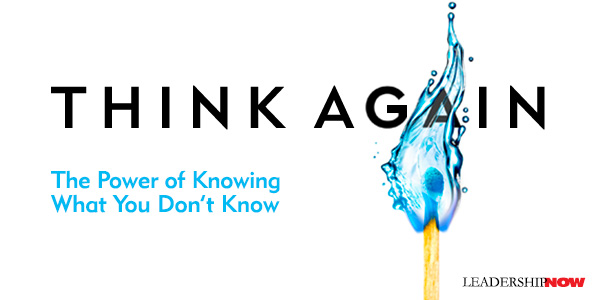
RETHINKING can cause uncertainty. Make us uncomfortable. Feel uneasy. It can threaten our identities. But rethinking can also help us find solutions to old problems, deepen our perspective, release us from inherited dogma and other people’s opinions, and understand how our closely held values relate and are applied to our changing environment. Adam Grant challenges us to Think Again—to question what we think we know. “Unfortunately, when it comes to our own knowledge and opinions, we often favor feeling right over being right.” Grant’s colleague Phil Tetlock discovered that when we think and talk (and scan social media), we tend to slip into the mindsets of three different professions: preachers, prosecutors, and politicians. “The risk is that we become so wrapped up in preaching that we’re right, prosecuting others who are wrong, and politicking for support that we don’t bother to rethink our own views.” (Grant offers a short Think Again quiz on his website.) The approach to ideas and opinions that we need to be gravitating to is the scientist mindset. It is a mindset of curiosity and a search for truth rather than becoming defensive, offensive, or appeasing.
Rethinking is not a question of how smart you are. “The brighter you are, the harder it can be to see your own limitations. Being good at thinking can make us worse at rethinking.” What does matter is how curious and actively open-minded you are. Actively in the sense that we are searching for reasons why we might be wrong. A key to rethinking is being able to detach yourself from your beliefs. This takes two forms: “detaching your present from your past and detaching your opinions from your identity.” Who you are should be a question of what you value, not what you believe. Values are your core principles in life—they might be excellence and generosity, freedom and fairness, or security and integrity. Basing your identity on these kinds of principles enables you to remain open-minded about the best ways to advance them. It is quite common for differences of opinion to turn into a relational conflict—personal and emotional—filled with animosity and vindictiveness. Task conflict is often desirable in order to get to the best answer. “The absence of conflict is not harmony, it’s apathy.” When a clash gets personal and emotional, we become self-righteous preachers of our own views, spiteful prosecutors of the other side, or single-minded politicians who dismiss opinions that don’t come from our side. While it’s nice to have people around us that agree with us, successful people need a challenge network—people we trust that can point out blind spots, doubt our knowledge and be humble about our expertise. In short, people who will question us and hold us accountable for rethinking our perspectives. Wilbur Wright once wrote, “Honest argument is merely a process of mutually picking the beams and motes out of each other’s eyes so both can see clearly.” Grant notes that “research suggests that we want people with dissimilar traits and backgrounds but similar principles. Diversity of personality and experience brings fresh ideas for rethinking and complementary skills for new ways of doing.” In a debate, it is best to begin with finding common ground. It’s a dance. “When we concede that someone else has made a good point, we signal that we’re not preachers, prosecutors, or politicians trying to advance an agenda. We’re scientists trying to get to the truth.” At the same time, keep your argument simple. Too many, and you will dilute the power of each and every one. “We don’t have to convince them that we’re right—we just need to open their minds to the possibility that they might be wrong.” When we know that we might not really know, rather than investigating, “we become mental contortionists, twisting and turning until we find an angle of vision that keeps our current views intact.” And we can become quite hostile. No surprise there. It’s hard to get others to change. It’s better to help them find their own reason to change. And the best way to do that is to listen—ask questions. What we have to avoid is the righting reflex—“the desire to fix problems and offer answers.” There are a good number of issues in the world where there is more going on than we know. The issues are complex and not binary—yes or no. Admitting the complexity of an issue is often a sign of credibility. And skeptics are not deniers. They are curious. If you find yourself saying _____ is always good or _____ is never bad, you may be a member of an idea [or personality] cult. Appreciating complexity reminds us that no behavior is always effective and that all cures have unintended consequences. Grant gives us many more reasons to rethink what we think than I have covered here. His concern is that by reading the book, we don’t close the book on the issue of rethinking. The book brings awareness to our human nature, but it doesn’t make us do anything about it. It’s easy to look at our loosely held beliefs and rethink them. The challenge is to rethink those deeply held ideas and beliefs that tend to divide us—especially those ideas that we have blindly accepted from others. We—collectively—have outsourced far too much of our thinking. It’s time to think again. 
Posted by Michael McKinney at 07:51 AM
02.25.21

Leading Thoughts for February 25, 2021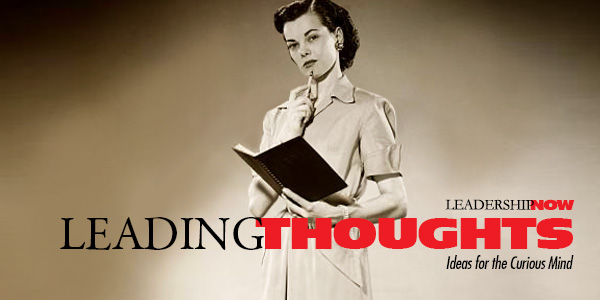
IDEAS shared have the power to expand perspectives, change thinking, and move lives. Here are two ideas for the curious mind to engage with: English philosopher John Stuart Mill on the pursuit of happiness: “Those only are happy who have their minds fixed on some object other than their own happiness; on the happiness of others, on the improvement of mankind, even on some art or pursuit, followed not as a means, but as itself an ideal end. Aiming thus at something else, they find happiness by the way. Source: Autobiography Writer Jay Parini on E. L. (Edgar Lawrence) Doctorow’s contribution to our understanding of the past: “What Doctorow knew, and demonstrated in book after book, is that the past is very much alive, but that it’s not easily accessed. We tell and retell stories, and these stories illuminate our daily lives. What ‘really’ happened – in family stories, in public tales – often eludes our grasp. And yet we need to know, or think we do, what happened, as it keeps happening again. History is never really ‘over,’ or so we discover, as we loop through the same issues again and again. Source: CNN: E.L. Doctorow’s Gift Look for these ideas every Thursday on the Leading Blog. Find more ideas on the LeadingThoughts index.
Posted by Michael McKinney at 07:45 AM
02.22.21

How to Become a Hyper-Learner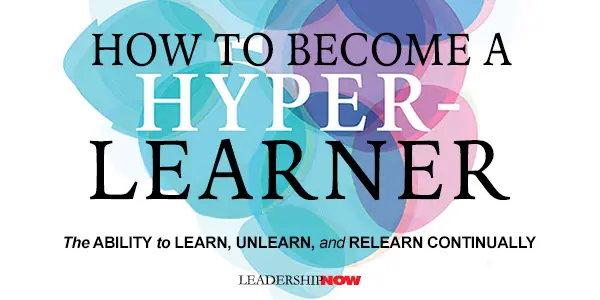
STAYING relevant in this Digital Age requires that we learn, unlearn, and relearn as a way of being. Ed Hess calls it Hyper-Learning. How well we think, learn, and engage in the human tasks of the future depends on how well we manage and optimize what’s going on with our minds, brains, and bodies. Humankind has always faced these challenges but what is different today is the intensity—the timeframe we have available to learn, unlearn, and relearn. Our egos make us think we know more than we do and gets in the way of hyper-learning. Fear, too, is an inhibitor. If we are to be hyper-learn, we need to listen to understand other perspectives. Too often, we listen to argue or to reinforce our point. To become a Hyper-Learner, we need to become our “Best Self cognitively, behaviorally, and emotionally.” This requires three main steps: Step 1: Achieve Inner Peace Inner peace is important because in this state, you are better able to approach things with an open, nonjudgmental, and fearless mind. We cultivate inner peace by quieting our ego, our mind, and our body, and developing a positive emotional state. With inner peace, you are better able to slow down and “exercise choice in your thinking, emotions, and behaviors.” What you must confront is the question of whether your ego is so loud that it impedes your ability to become a Hyper-Learner. “A Quiet Mind is a calm, silent mind focused on the present moment.” It is not competitive. It is a mind that tries to see the world as it is without judging or the distractions that come from multitasking or ruminating. A Quite Body is one that is at peace. “It is not tense, chronically stressed, anxious, angry, fearful, or experiencing pain.” Most of these issues are mental and deal with how we think. They can be influenced by certain meditation and deep breathing practices. Positive emotions are essential to Hyper-Learning. We can learn to generate positive emotions. “Being kind to others, caring about others, being thankful for what you have, and experiencing simple daily joys all contribute to having a Positive Emotional State.” Step 2: Adopt a Hyper-Learning Mindset Hess has indemnified two lifelong learning mindsets: the Growth Mindset and the NewSmart Mindset. Carol Dweck popularized the Growth Mindset. As opposed to the fixed mindset, the growth mindset is based on the idea that our intelligence is not fixed but that we can learn, improve our skills, and grow. It sees potential. The NewSmart Mindset redefines what “smart” is. Rather than seeing smart as knowledge accumulation and recall, NewSmart views smart and thinking in ways computers can’t— “ways that involve exploration, discovery, imagination, morals, creativity, innovation, and critical thinking when there are lots of unknowns or little data.” Step 3: Behave Like a Hyper-Learner As a Hyper-Learner, your behavior matters. “Behaviors are how you operationalize your values, belief, and purpose.” Great line. Behaviors reflect how you see or define yourself. To change behaviors, you have to change the story you tell about yourself. Behaviors are granular. They are reflected in how you talk, your tone, your physical presence, your volume, how you connect with people, how you listen, how you think, how you manage your emotions, how you ask questions, and how you react. Hess asks us to list what behaviors do we think are necessary to become Hyper-Learners? He provides a list of some like curiosity, humility, social intelligence, empathy, courage, resilience, and trustworthiness. We not only need to be different, but we must learn to work differently. Specifically, we need to humanize the workplace and create an environment that mitigates ego and fear. Humanizing the Workplace means that the desired values and behaviors are woven into the daily way of working—the daily fabric of the organization—through practices that are used by all people every day. Hess emphasizes the importance of emotional connections. And the answer to the question, why do I exist? “People are yearning for more from their work. They want more meaning and richness and to experience more joy. They want higher-quality emotional connections with others. And it’s not just coming from younger generations.” What makes Hyper-Learning practical is its focus on behaviors. He does this through explanation but, more importantly, with a workshop/workbook format that encourages active participation with the text through reflection and journaling. 
Posted by Michael McKinney at 12:01 AM
02.18.21

Leading Thoughts for February 18, 2021
IDEAS shared have the power to expand perspectives, change thinking, and move lives. Here are two ideas for the curious mind to engage with: British philosopher Owen Barfield giving a gentle provocation to new perspectives: “There may be times when what is most needed is, not so much a new discovery or a new idea as a different ‘slant’; I mean a comparatively slight readjustment in our way of looking at the things and ideas on which attention is already fixed.” Source: Saving the Appearances: A Study in Idolatry Anders Ericsson, Michael Prietula, and Edward Cokely on the making of an expert: “The journey to truly superior performance is neither for the faint of heart nor for the impatient. The development of genuine expertise requires struggle, sacrifice, and honest, often painful self-assessment. There are no shortcuts. It will take you at least a decade to achieve expertise, and you will need to invest that time wisely, by engaging in “deliberate” practice—practice that focuses on tasks beyond your current level of competence and comfort. You will need a well-informed coach not only to guide you through deliberate practice but also to help you learn how to coach yourself. Above all, if you want to achieve top performance as a manager and a leader, you’ve got to forget the folklore about genius that makes many people think they cannot take a scientific approach to developing expertise. Source: Harvard Business Review, The Making of an Expert Look for these ideas every Thursday on the Leading Blog. Find more ideas on the LeadingThoughts index.
Posted by Michael McKinney at 07:56 AM
02.11.21

Leading Thoughts for February 11, 2021
IDEAS shared have the power to expand perspectives, change thinking, and move lives. Here are two ideas for the curious mind to engage with: Historians Will and Ariel Durant on the need for educated citizens: “Democracy is the most difficult of all forms of government, since it requires the widest spread of intelligence, and we forgot to make ourselves intelligent when we made ourselves sovereign. Education has spread, but intelligence is perpetually retarded by the fertility of the simple. It may be true, as Lincoln supposed, that ‘you can’t fool all of the people all the time,’ but you can fool enough of them to rule a large country. Source: The Lessons of History Retired professor William Kilpatrick on the importance of teaching morals and why teaching leadership is critical to leadership development “None of us wants to go to untrained doctors, or fly with untrained pilots, or have untrained soldiers protect our country, but for some reason, we have come to believe that one can be a good person without any training in goodness. We have succumbed to a myth that claims that morality comes naturally, or at most, with the help of a little reasoning. But it seems increasingly clear that these metaphors and the models that flow from them aren’t working. The ‘natural’ thing to do in most situations is to take the easy way out. The most perfectly rational plan of action is to always put yourself first.” Source: Why Johnny Can't Tell Right from Wrong: And What We Can Do About It Look for these ideas every Thursday on the Leading Blog. Find more ideas on the LeadingThoughts index.
Posted by Michael McKinney at 01:58 PM
02.05.21

Unexpected Leadership Lessons that Mobsters Can Teach Lawful Leaders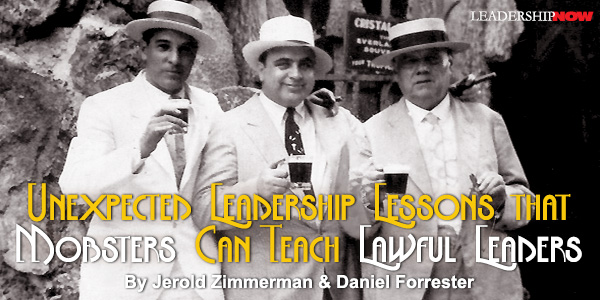
LEADERSHIP is a broad term, and it applies to those who you might not have a positive perception of — including mobsters. We discovered through a rigorous analysis applying 70 years of Nobel-prize winning economics that Mobsters have leadership teams and structures that enable their success despite continuous efforts to disrupt them. Many of these crime syndicates have survived over a hundred years despite enormous law enforcement resources devoted to their daily demise. How is that possible when mobsters cannot simply have team members sign up for an online training course or activate their methods through “Mafia Academy?” In our book, Relentless: The Forensics of Mobsters; Business Practices, we discovered the leadership principles of organized crime syndicates that forge high-performance teams of very loyal gangsters, incredibly strong brand names and cultures with a long-term perspective and an unrelenting customer focus. Relentless offers five transformative leadership lessons that leadership training programs must incorporate and promote. These include: 1. Follow the Same Fundamental Economic Principles as Mobsters All organizations, lawful and unlawful, face the same corporate governance problem: how to attract, retain, and motivate a self-interested workforce to achieve the organization’s mission and strategy. All firms must empower people with the knowledge and incentives to execute the task to benefit the organization. Then these individuals’ performance must be measured and rewarded. Finally, leaders must develop a culture that communicates the organization’s vision and strategy. The American Mafia survives using well-defined organization charts that empower small crews of mobsters that specialized by racket: gambling, loan sharking, extortion, union corruption, and so forth. These crews kept roughly 75 percent of their illicit profits, passing the remainder up as a type of franchising fee. The mob bosses constructed enduring crime rings using core economic concepts of corporate governance that lawful managers also must follow. The same economic principles underlying McDonald’s franchising model as a corporate governance scheme also are used by mob bosses running large families of criminals. Relentless teaches these time-honored principles using crime syndicates as case studies. 2. Mobsters Relentlessly Adapted Their Strategies and Corporate Governance to An Ever-Changing World History is replete with countless leaders trying to pivot to a new reality when their world suddenly changes. Take Kodak trying to adapt to digital imaging, or JC Penny trying to compete in a new retail space, or everyone today trying to adapt and survive in a pandemic. Leaders’ ecosystems evolve, and so too must their strategies. But new and bold strategies often require modifying corporate governance to attract, retain, and motivate a self-interested workforce to implement the often-controversial new strategies. It turns out that organized crime syndicates relentlessly search out and implement new rackets as opportunities present themselves. National Prohibition in the 1920s offered local Mafias the opportunity to ramp up their bootlegging to provide the now banned alcohol, thereby generating enormous cash profits. During World War II, basic staples like sugar, meat, and even tires were rationed via coupons. Relentless and resourceful gangsters quickly filled the void with stolen or counterfeit rationing coupons. Recently, INTERPOL issued a global alert warning law enforcement in hundreds of countries to expect organized crime networks to target COVID-19 vaccines, both physically and online. The Mafia’s corporate governance system created high-performance teams of entrepreneurial mobsters who quickly seized new openings. So too must lawful leaders relentlessly scan their environments for new opportunities and threats, adjust their strategies accordingly, and then make appropriate corporate governance adjustments to how they empower and motivate their workforce to achieve the amended strategies. 3. One Size Doesn’t Fit All Every leader must design a unique corporate governance scheme that matches its exclusive strategy. The Mafia, Hells Angels, and the Sinaloa Cartel had different missions and strategies, and so their leaders developed unique corporate governance schemes. While lawful leaders cannot simply mimic gangsters’ governance schemes, they must apply the same economic principles mobsters follow that channel employees’ self-interest to pursue new strategies. In other words, don’t merely copy the corporate governance methods used by successful lawful companies because they unlikely will apply to your company’s unique mission and strategy. Understand what motivates your workforce and design fulfilling jobs, performance measures, compensation schemes, and corporate cultures that create high-performance teams to deliver products and services that exceed your customers’ expectations. 4. Ensure That All Four Pieces of the Organization’s Corporate Governance Are Coordinated and Complement Each Other Mafia crews sat around all day scheming possible heists. They had informants at airports who fed them information about valuable outbound cargos. The crew would hijack the truck and fence the goods splitting most of the money among themselves. The family boss empowered this crew to boost valuable cargo at airports. The crew had specific knowledge about the cargo. The performance measures were very simple – money generated and not getting caught. Performance was rewarded by the cash generated. And the culture attracted and retained immoral, very loyal, resourceful, and relentless criminals. All four pieces of the Mafia’s corporate governance were perfectly matched and complemented each other. Too often, lawful leaders deploy far too many performance measures that only confuse and dilute the subordinate’s efforts. The mob kept their performance measures simple and few in number. 5. Make Corporate Culture the Differentiator Culture consists of the values, norms, and behavior of how things are done around here. Engaging leaders know that alignment across hundreds, and even tens of thousands of employees takes time and nurturing through story-telling. They articulate and strive to live the norms, values, and behaviors that will drive performance and know that if they don’t practice it from the top, no one down the ranks will even care. One of the most surprising lessons we learned in researching Relentless was the importance of their cultures. The Mafia values immorality, loyalty, resourcefulness, and steadfastness and attracted and retained mobsters with these values. Wannabe Mafioso often waited decades before becoming made men. Once admitted, the Mafia family offered them protection from other bad guys and enormous prestige. Staying in the family required unyielding loyalty and a code of silence. Surviving since the 1920s testifies to the enormous strength of the American Mafia’s culture. Lawful leaders should seek to build a culture that differentiates their organization from others. 

Posted by Michael McKinney at 12:36 AM
02.04.21

Leading Thoughts for February 4, 2021
IDEAS shared have the power to expand perspectives, change thinking, and move lives. Here are two ideas for the curious mind to engage with: Professor of journalism and sociology at Columbia University Todd Gitlin, on the experience of media: “The media are, in relation to social reality, fun-house mirrors, selective in their appetites, skewed in their imagery. The news is not in any simple way a ‘mirror’ on the world; it is a conduit for ideas and symbols, an industrial product that promotes packages of ideas and ideologies, and serves, consequently, as social ballast, though at times also a harbinger of social change. The news is a cognitive warp.” Source: Media Unlimited: How the Torrent of Images and Sounds Overwhelms Our Lives Thomas Sowell on the media gimmick of turning questions of fact into questions of emotion: “Emotions neither prove nor disprove facts. There was a time when any rational adult understood this. But years of dumbed-down education and emphasis on how people “feel” have left too many people unable to see through this media gimmick.” Source: The Media’s Role Look for these ideas every Thursday on the Leading Blog. Find more ideas on the LeadingThoughts index.
Posted by Michael McKinney at 03:14 PM
02.01.21

First Look: Leadership Books for February 2021Here's a look at some of the best leadership books to be released in February 2021. Don't miss out on other great new and future releases not listed here.
Intelligence is usually seen as the ability to think and learn, but in a rapidly changing world, there's another set of cognitive skills that might matter more: the ability to rethink and unlearn. In our daily lives, too many of us favor the comfort of conviction over the discomfort of doubt. We listen to opinions that make us feel good, instead of ideas that make us think hard. We see disagreement as a threat to our egos, rather than an opportunity to learn. We surround ourselves with people who agree with our conclusions, when we should be gravitating toward those who challenge our thought process. Think Again reveals that we don't have to believe everything we think or internalize everything we feel. It's an invitation to let go of views that are no longer serving us well and prize mental flexibility over foolish consistency. If knowledge is power, knowing what we don't know is wisdom.
An inspiring and practical look inside the mind of Bill Novelli, one of the founders of social marketing, Good Business challenges all of us to change the world for the better and is a blueprint for tackling today's critical issues. Throughout the book, Novelli argues that you can make a positive social difference regardless of what business you are in or where you are in your career. Readers will come away with the message that anyone who wants to have a positive impact on the world can do it right now from where they are―or can be inspired by Novelli's story to make the leap to somewhere they can.
For the first time in American history, a significant number of mothers are heading major corporations, including General Motors, Ulta Beauty, and Best Buy. Over the past several decades, women have made gains throughout executive suites. Yet these “Power Moms” still struggle with balancing their management responsibilities with raising children. Joann S. Lublin draws on the experiences of the nation’s two generations of these successful women to measure how far we’ve come—and how far we still need to go.
For most people, conflict triggers a fight or flight response. Disagreeing productively is a hard skill for which neither evolution or society has equipped us. It’s a skill we urgently need to acquire; otherwise, our increasingly vociferous disagreements are destined to tear us apart. Productive disagreement is a way of thinking, perhaps the best one we have. It makes us smarter and more creative, and it can even bring us closer together. It’s critical to the success of any shared enterprise, from a marriage, to a business, to a democracy. Isn’t it time we gave more thought to how to do it well?
A memoir of successful leadership in times of crisis: the former CEO of General Electric, named one of the “World’s Best CEOs” three times by Barron’s, shares the hard-won lessons he learned from his experience leading GE immediately after 9/11, through the economic devastation of the 2008–09 financial crisis, and into an increasingly globalized world. In Hot Seat, Immelt offers a rigorous, candid interrogation of himself and his tenure, detailing for the first time his proudest moments and his biggest mistakes. The most crucial component of leadership, he writes, is the willingness to make decisions. But knowing what to do is a thousand times easier than knowing when to do it. Perseverance, combined with clear communication, can ensure progress, if not perfection, he says. As the business world continues to be rocked by stunning economic upheaval, Hot Seat is an urgently needed, and unusually raw, source of authoritative guidance for decisive leadership in uncertain times.
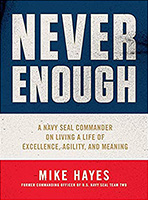 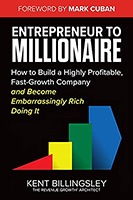 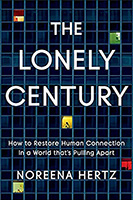
 Build your leadership library with these specials on over 28 titles. All titles are at least 40% off the list price and are available only in limited quantities. “Compare the difference between the life of a man who does no reading and that of a man who does. The man who has not the habit of reading is imprisoned in his immediate world, in respect to time and space. His life falls into a set routine; he is limited to contact and conversation with a few friends and acquaintances, and he sees only what happens in his immediate neighborhood. From this prison there is no escape.” — Lin Yutang, The Importance of Living
Posted by Michael McKinney at 08:49 AM
|
BUILD YOUR KNOWLEDGE


How to Do Your Start-Up Right STRAIGHT TALK FOR START-UPS 
Grow Your Leadership Skills NEW AND UPCOMING LEADERSHIP BOOKS 
Leadership Minute BITE-SIZE CONCEPTS YOU CAN CHEW ON 
Classic Leadership Books BOOKS TO READ BEFORE YOU LEAD |
|